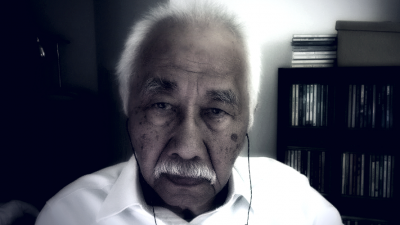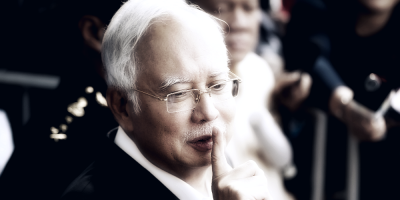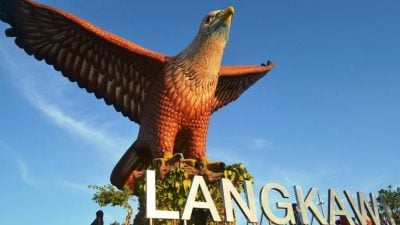
The Chinese have been part of life in Malaysia since the arrival of Kublai Khan in Borneo in 1292. This was around the time of Angkor and at the beginning of the Majapahit Kingdom, which Kublai Khan played a major role in facilitating Raden Wijaya as first emperor.
Only the Sultanate of Kedah was in existence at that time.
Over the next 900 years, various Chinese ethnic groups came over in waves into what is now called Malaysia.
Some Chinese families have hereditary roots going back further than some of the Melayu ethnic groups.
The forefathers of Malaysian Chinese played a major role in both the economic and social development of the country.
Chinese groups were positive about the formation of Malaya and later Malaysia, on the whole becoming good and loyal citizens.
History goes against the artificial constitutional construct of “bumiputera.”
The Chinese in Malaysia are a very heterogeneous grouping. Malaysia has Cantonese, Hokkien, Teochew, Hakka, Hainanese and Henghua sub-groups. These groups all have different dialects, some differences in social customs, have different cuisines, and followed different occupations.
They settled in different parts of Malaysia, at different times, and by different events in China.
Another distinct division within Malaysian Chinese is in their education.
Those who have been Chinese-educated are more attuned to Chinese customs and tend to be more conservative, while those who are English-educated are more extroverted towards outsiders, and open to adapting to local customs.
Generally, the Chinese have been loyal and respectful of the laws. They have historically lived in patriarchal and rules-based societies.
Some Chinese families had their success through business. This has not been through grand visions, but trying some business activity, and moving onto another if it isn’t successful.
The Chinese have built business empires on replicating ideas, and duplicating them in other geographic locations.
Most of their success comes through their well-disciplined work ethic.
Derogatory narratives have not recognized the contribution of how positive work attributes contributed to the growth and development of the country.
Brutal narratives
It was clearly evident that the rulers of Malaysia would be dominated by the Malays, and the Chinese would partake a supporting role.
However, when Tunku Abdul Rahman was disposed as prime minister, Umno swung around towards a much more Malay-centric orientation.
Malaysia for the Chinese drastically changed.
Back in 1971, most economists agreed the New Economic Policy (NEP) was necessary to positively discriminate towards the Malays, who were left behind economically in national development.
However, instead of focusing on income, the NEP focused on equity and ownership.
This was a fallacy from the beginning, as those Malays living on low incomes and in poverty didn’t need equity. They needed income.
The emerging “Ketuanan Melayu” (Malay supremacy) narratives radically changed the position of the Chinese in Malaysia.
With strict employment quotas in the civil service, and the restriction of places in higher education for the Chinese, non-Malays were shut out.
The very notion of equality of opportunity was taken away. Thus, instead of the Malays gaining as the economy developed, the concept of equity focused up redistribution.
This is in a similar notion to the “wokenomics” emerging in post-industrial West today.
If Chinese were to succeed in life, they would have to find their own ways. They would have to attend tertiary education overseas and seek employment in either a Chinese or foreign multinational firm, or start their own businesses.
The NEP totally ignored the reality that there were many Chinese and Indians living in poverty.
This situation continued for more than three generations. Not only did the Chinese have to suffer the consequences and apartheid nature of the NEP, they would see the creation of a privileged group that received discounts of house purchases, eligibility to high interest paying accounts like ASN and ASB.
Their children could not get a place in university. They would be reminded of their second-class position in society on a daily basis.
There was no compassion and empathy in society for the Chinese, while special privileges for bumiputeras were often abused for profit making by a select few elite people.
Ultra-Malay groups and politicians often conjured up hateful narratives against the Chinese.
There have been few studies of the psychological effects upon the Chinese cohort in society.
Many Chinese felt totally abandoned by their own nation. It was this abandonment that destroyed multicultural nationhood.
It was the trumpeting of “Ketuanan Melayu” narratives which labeled the Chinese “pendatang” (or visitors). Bashing the Chinese “bogeyman” was convenient.
Coping mechanisms (strategies)
Malaysian Chinese have long felt disadvantaged economically and politically while the Chinese aspects of their cultural heritage has become smothered by the rise of Malay-centric nationalist narratives.
Generations of being deprived of economic opportunity and berating narratives, something akin to an African nation in the 1970s, has made it necessary for the Chinese to develop their own coping mechanisms.
Consequently, the Chinese have adopted a number of strategies, either consciously or unconsciously, to handle the personal predicaments Malaysian policy-makers have served up to them.
1. Live in a Chinese-centric bubble: Some choose to live in a cultural bubble of language, friends, media and cuisine.
They are usually Chinese-educated, speak Mandarin, work in a Chinese business, and don’t mix outside their own ethic group.
2. Integrate into society: Another group see the repression as their fate but carry on living, as they have no choice.
Consequently, they integrate as much as possible, speak Bahasa or English besides their mother tongue, work in the best jobs they can get, or run a business.
Their children are often schooled within the Malaysian national school system and are brought up bilingually, accepting Malaysia as it is today.
3. Assimilate: Many Chinese have assimilated into the Malay culture. Some have even masuk Melayu through converting to Islam and/or intermarrying with a Malay.
4. Leave the country: Many Chinese look for opportunities abroad and emigrate to countries like the United States, UK, Australia, Singapore, Taiwan or China.
Higher education is one of the major tools used to leave, where after graduating they will seek employment and apply to stay.
There are many Malaysian Chinese expatriates who have been very successful internationally, in the fields of business, science, research, academia, and even politics.
5. Develop an admiration for China: With many young generation Chinese feeling worthless as Malaysians, their ethnic and cultural similarities to China over the media has led them to develop a deep admiration for the country.
They celebrate China’s achievements and successes, and find solace in identifying with the “Chinese dream.”
There are many like-minded Chinese in Malaysia who are members of organizations sponsored by the CCP United Front.
These organizations include cultural groups, Chinese Chambers of Commerce, and Chinese friendship groups.
The camaraderie of clan kinship has been recreated by the young generation. The Chinese ambassador and consuls have become de facto social leaders.
The consequences of the above are beyond this article. At this point, it is enough to recognize the phenomenon.
Mahathirism and Umno over the last 60 years were the precursors. Their policies and actions have prevented Malaysia from becoming a true nation with a patriotic bond among citizens.

(Murray Hunter has been involved in Asia-Pacific business for the last 40 years as an entrepreneur, consultant, academic and researcher. He was an associate professor at Universiti Malaysia Perlis.)
ADVERTISEMENT
ADVERTISEMENT








































